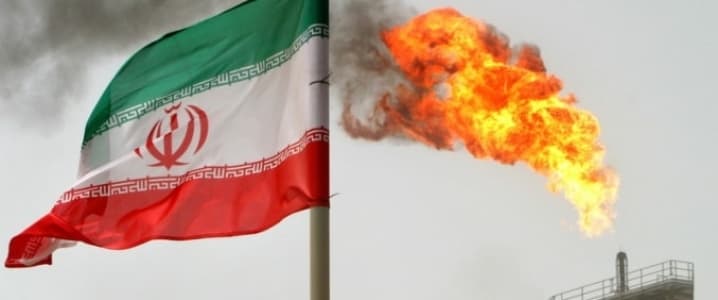Iranian officials continue to encourage multinational fossil fuel companies to pursue production deals in the country, despite disconcerting rhetoric from the White House that suggests the 2015 nuclear deal, which allowed Tehran to re-enter international oil markets after six years of isolation, could unravel at President Donald Trump’s whim.
“Our hand are full,” said Iran’s Deputy Oil Minister Amir Hossein Zamaninia during the World Petroleum Congress in Istanbul this week. “We think that the situation is normal enough for major international oil business to get engaged in Iran.”
France’s Total recently committed to spending $1 billion on a gas project this month, but such an investment in Iran from a European oil major is an exception, not the rule. If the United States backs out of the nuclear deal, the companies could be exposed to sanctions imposed by the White House on projects on American lands and waters. This dynamic keeps enthusiasm towards developing oil resources in Iran—the third-largest producer in OPEC—at a low, even though the legal barriers to doing business with Tehran are currently non-existent.
But Iran insists that new contracts worth $92 billion will raise oil production by a third and boost gas exports 15-fold in just four years. That’s a 2021 deadline in a bearish market that shows no signs of relenting.
Regarding the current geopolitical standoff between the United States and Iran, Zamaninia said “BP’s decision to be cautious on Iran [was] a ripple effect” of the American agenda against conducting business in the Middle Eastern country. This attitude represents a shift in Iranian political sentiments against the United States since Trump’s swearing-in ceremony. Related: Shell Nigeria Declares Force Majeure On Nigerian Light Oil Exports
Whereas President Barack Obama and Secretary of State John Kerry sought to bring Iran out of its dark economic times, President Trump has repeatedly stated that the nuclear deal with Iran was rubbish, and is reviewing Iran’s compliance at regular intervals. Over the course of 2016, Kerry used his international platform to clarify that non-American companies could freely invest in new Iranian projects without fear of retaliation from U.S. authorities. But that was back when it was assumed Democratic candidate Hillary Clinton would win the 2016 elections and continue the bulk of the Obama doctrine.
In April, the last time an official White House approval of Iranian compliance was required, Trump’s State Department certified Tehran’s adherence to the deal. But the thumbs-up came with the news that the deal was under “official review” to determine whether the lifting of sanctions was, in fact, in the United States’ national security interest.
The position of the White House has contributed to Saudi Arabia’s belief that it has gained a true ally against its key Middle Eastern rival. According to Saudi Arabia, Qatar’s recent estrangement from its Gulf allies stems partially from Doha’s willingness to maintain relations with Iran – the nation with which it shares the gargantuan South Pars old field.
As the United States increases its oil exports and moves closer to becoming the world’s top LNG exporter, stifling Qatar, currently the No. 1 exporter of liquified national gas, and sanctioning Iran, a significant oil exporter, could indeed further the United States’ “energy dominance” agenda.
Iran is not without interest from China, India and Russia, which could allow it to secure billions in funding, but the White House could tear up the nuclear deal at any moment, catapulting Tehran back into economic isolation, with the KSA ready to hammer the nails into the Iranian oil sector’s coffin.
By Zainab Calcuttawala for Oilprice.com
More Top Reads From Oilprice.com:
- Significant Draw In Crude Inventories Jolts Oil Prices
- Is Wall Street Funding A Shale Failure?
- ‘’Oil Market Rebalancing Hasn’t Even Started Yet’’
















